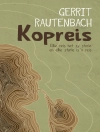In ‘Personal Narrative of Travels to the Equinoctial Regions of America: 1799-1804, ‘ Alexander von Humboldt and Aimé Bonpland offer a vivid tapestry of exploration, scientific curiosity, and cultural encounters through their meticulous documentation of the New World. The anthology navigates through the lush landscapes and diverse ecosystems of South America, articulated with profound insight into the natural world and the intricate interconnections between human cultures and their environments. This work, embedded in the Enlightenment’s spirit of inquiry and Romantic era sensibilities, stands as a testament to the unyielding human desire to comprehend the vastness and complex beauty of the Earth. Humboldt and Bonpland, renowned polymaths of their time, transcended traditional boundaries of 18th and 19th-century scientific exploration and travel writing. They celebrated a holistic approach to understanding geography, botany, and cultural diversity, paving the way for modern ecology and ethnography. Their prolific contributions to natural sciences, combined with their respect for Indigenous knowledge, resonate with historical and cultural movements that seek to bridge scientific inquiry with human narratives. This collection curates their expansive observations, enriched by their pioneering methodologies and collaborative ethos that redefine the era’s exploration and documentation. This anthology is an invaluable resource for readers eager to embrace the kaleidoscope of perspectives offered by Humboldt and Bonpland’s experiences. It invites readers into a multifaceted exploration of nature and cultures, seamlessly blending empirical observations with poetic reflections. The volume’s pages encourage a deeper appreciation for the interconnectedness of life and the enduring dialogue between humanity and the natural world. Ideal for scholars, students, and curious readers alike, this collection promises an enlightening journey through its rich tapestry of discovery and reflection.
Об авторе
Alexander von Humboldt (1769–1859) was a Prussian polymath, geographer, naturalist, explorer, and influential proponent of Romantic philosophy and science. His quantitative work on botanical geography laid the foundation for the field of biogeography. Humboldt’s contributions to the natural sciences are widely acknowledged as foundational, especially due to his concern for empiricism coupled with a holistic interpretation of nature. Among his most famous works is the expansive account ‘Personal Narrative of Travels to the Equinoctial Regions of America: 1799-1804’, which provides a detailed scientific record of his extensive travels across the American continent along with fellow scientist Aimé Bonpland. This text not only depicts the rich experiences and observations of Humboldt but also exemplifies his pioneering role in the use of isotopes in environmental research. Humboldt’s literary style effectively combines rigorous scientific observations with rich, detailed narratives, showcasing his deep appreciation for the interconnectedness of the natural world. His multidisciplinary approach and penchant for synthesis make his works a significant point of reference in various scientific discourses. His legacy is evident in the numerous species and places named after him, reflecting his immense influence on multiple fields of study, from ecology to geography to oceanography.












